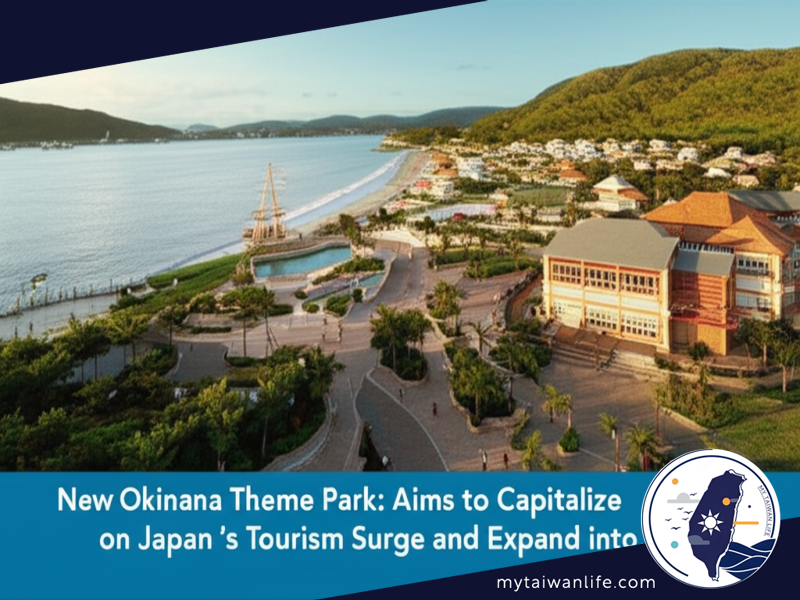New Okinawa Theme Park: Aims to Capitalize on Japan's Tourism Surge and Expand into Asia
Junglia, a nature adventure park in Okinawa, hopes to leverage Japan's tourism boom to establish itself and potentially expand into Asian markets.

TOKYO: The new nature adventure park, Junglia, located on the southern island of Okinawa, is positioning itself to capitalize on Japan's burgeoning tourism industry and eventually expand into Asian markets.
Junglia, a 60-hectare site built on a former golf course, will open on July 25th, featuring over 20 attractions. These include a hot air balloon ride, buggy riding, treetop walking, and a "Dinosaur Safari".
The park, which cost approximately ¥70 billion (US$634 million) to construct, is the brainchild of Tsuyoshi Morioka, the chief executive of entertainment firm Katana. Morioka, a theme park veteran, is known for revitalizing attendance at Universal Studios Japan (USJ) in Osaka by introducing Harry Potter-themed attractions.
Japan is experiencing a significant increase in tourism, driven by a weaker yen. Last year, the number of overseas visitors climbed 47 percent to a record 36.9 million, with their spending increasing by 53 percent to ¥8.1 trillion. This makes tourism, which is counted as an export in GDP data, the second-largest export sector in the country after cars.
The Japanese market also has a strong affinity for theme parks. Tokyo's Disney resorts have consistently enjoyed success, and USJ has proven popular despite initial financial challenges. However, many parks have also faced setbacks.
Yu Shioji, chairman of the Amusement Park Society of Japan, is cautious about Junglia's long-term prospects, citing competition from other nature adventure parks and the relatively high cost of entry: ¥6,930 yen for locals and ¥8,800 yen for international visitors.
Despite the challenges, Morioka, who views himself as a "maths nerd," believes Junglia has a greater than 70 percent chance of success based on his calculations. He anticipates several thousand visitors per day and believes the park can be profitable even if it attracts only half the visitors of the nearby Okinawa Churaumi Aquarium, which sees approximately 3 million visitors annually.
Morioka anticipates sustained demand for theme parks and higher-value tourism services in Japan, given the increasing wealth in many Asian countries. He remarks that the weak yen is beneficial, but believes the underlying trend of people wanting to visit Japan will persist regardless of currency fluctuations.
The Japanese government aims to increase the number of overseas visitors to 60 million annually by 2030.
If Junglia is successful, Morioka suggests that the concept of developing smaller attractions, costing less than ¥100 billion, could be easily replicated in other Asian markets like Taiwan and Indonesia, unlike the mega-parks of Disney and USJ.
Listing Katana would be an option to fund future growth, he said, adding that he saw a lot of potential for theme parks built around Japanese anime if he can convince content creators to license their intellectual property.
"I think it would be good if there was a third option in cities around the globe after Disney and Universal," said Morioka. "I want to develop niches where they can't go and create a third force in attractions in the world that originates from Japan."
Other Versions
Nuevo parque temático de Okinawa: Pretende aprovechar el auge turístico de Japón y expandirse por Asia
Nouveau parc à thème à Okinawa : L'objectif est de tirer parti de l'essor du tourisme au Japon et de s'étendre à l'Asie
Taman Hiburan Baru di Okinawa: Bertujuan untuk Memanfaatkan Lonjakan Pariwisata Jepang dan Berekspansi ke Asia
Nuovo parco a tema di Okinawa: Punta a sfruttare l'aumento del turismo giapponese e ad espandersi in Asia
沖縄の新テーマパーク:日本の観光ブームとアジア進出を狙う
새로운 오키나와 테마파크: 일본 관광의 급증을 활용하고 아시아로 확장하는 것을 목표로 합니다.
Bagong Okinawa Theme Park: Layuning Samantalahin ang Pagdagsa ng Turismo sa Japan at Lumawak sa Asya
Новый тематический парк на Окинаве: Стремится воспользоваться туристическим подъемом в Японии и расширить свое присутствие в Азии
สวนสนุกธีมใหม่ในโอกินาว่า: ตั้งเป้าคว้าประโยชน์จากกระแสการท่องเที่ยวญี่ปุ่นที่พุ่งสูงขึ้นและขยายสู่เอเชีย
Công viên chủ đề Okinawa mới: Nhằm tận dụng sự tăng trưởng du lịch của Nhật Bản và mở rộng sang châu Á

